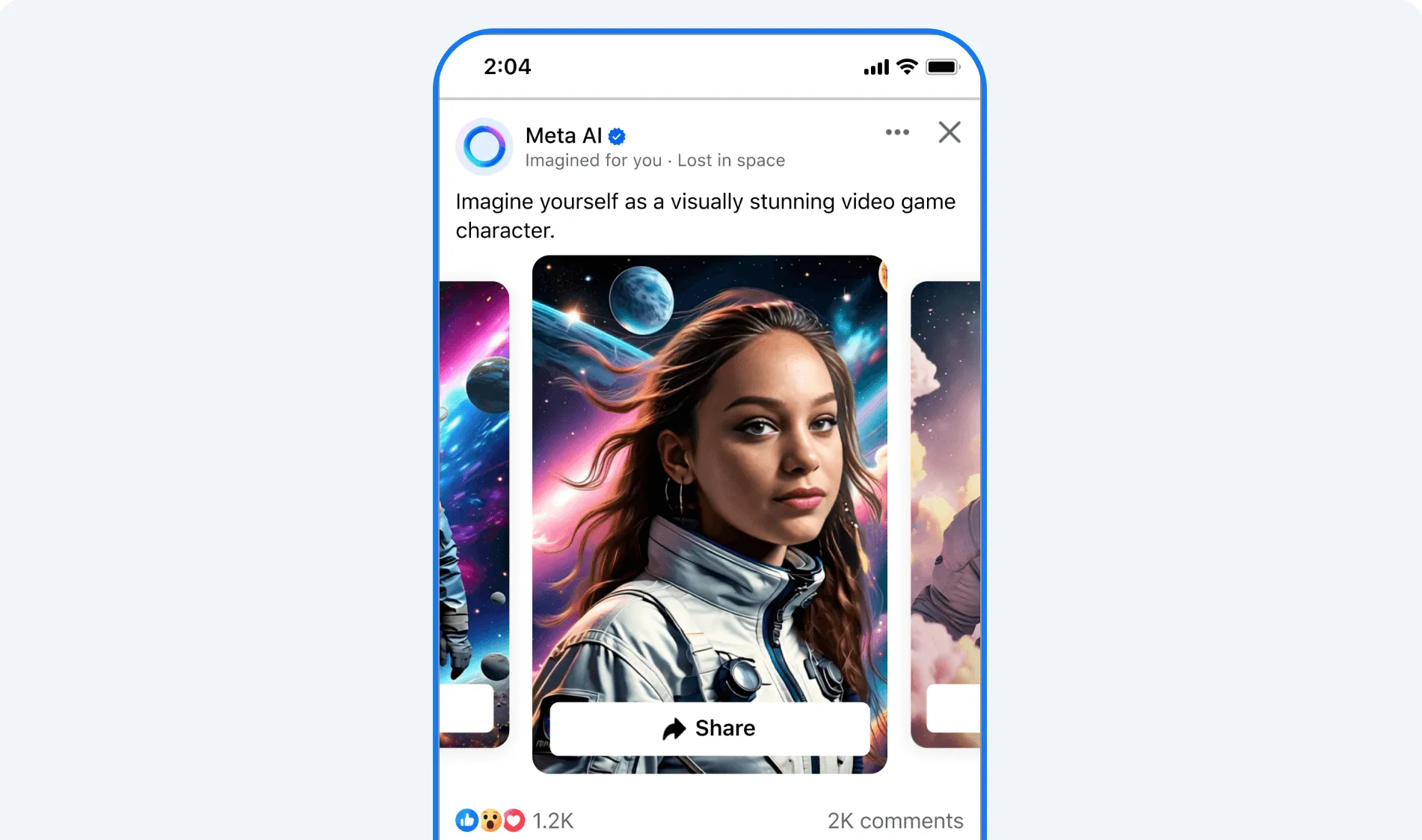Meta’s recent unveilings at its annual developer’s conference introduced a bold new direction for content generation using artificial intelligence. Amid a flurry of product announcements, one feature in particular caught the eye: the generation of personalized AI-made posts tailored to individual interests and likenesses.

A Deep Dive into Meta’s AI-Driven Personalization
Meta’s latest initiative aims to transform how content is consumed on social media platforms like Facebook and Instagram. By leveraging AI, Meta plans to populate users’ feeds not only with posts shared by their friends but also with content generated specifically for them by Meta’s AI. This content can range from images incorporating a user’s likeness to completely new creations designed to engage and captivate the individual user.
What sets this new feature apart is its proactive nature. Instead of merely reacting to user prompts, Meta’s AI will actively suggest content based on accumulated data regarding a user’s preferences and previous interactions. The company explained that users will have the opportunity to “be the star of their own story” and even influence the direction of the content they are shown. Should they choose, users can also opt out of this AI-curated experience, ensuring a level of control over their digital environment.

The Evolution of Content Consumption on Meta’s Platforms
This development is a continuation of Meta’s strategy to increase user engagement through AI-driven content curation. The Facebook feed has gradually evolved from a simple list of updates from friends into a complex algorithmic mix of posts that the platform believes will interest the user. This shift towards more personalized content, dynamically generated by AI, represents a natural progression in Meta’s business model. Meta has not only confined its AI advancements to content generation but also integrated these capabilities within Messenger and experimented with AI interventions in comment sections, though not all tests have proceeded to full implementation.

Public Reaction and the Road Ahead
The initial public reaction to AI-generated content, particularly outside of gaming environments, has been mixed. While some marvel at the technological prowess of AI in replicating human-like content, others have quickly disengaged, critiquing the lack of personal touch and creativity often found in AI-generated material. Descriptions of such content as “slop” underline the challenges Meta faces in maintaining quality and engagement in AI-generated posts.
As we look towards a future potentially dominated by AI in content creation, the debate continues about the implications for personalization versus privacy, the quality of AI-generated content, and the overarching role of AI in our social media landscapes. Will users embrace a world where their feeds are filled more by machine than man? Meta’s push into this new frontier is a clear signal that the company believes the answer is yes, but only time will tell how far they can take it and how users will respond.










